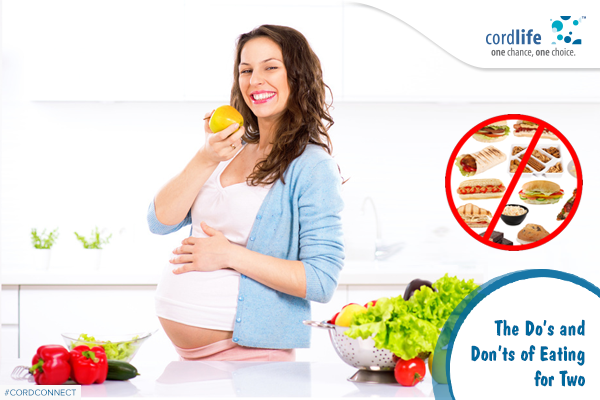Being pregnant for the first time can be a challenge when you have tons of questions to which you do not always have answers. A very common area of confusion for pregnant women is food. You probably think that expecting a baby means “eating for two”. The phrase is very misleading as health professionals these days are not recommending such a diet at all.
The Tommy’s Guide states: “An extra 200 calories – the equivalent of two small slices of bread – is all that is recommended during pregnancy and only in the last 12 weeks of pregnancy.”
Nutritionist Greer Craig says, “You want to eat what will give you the most nutritious bang for your calorie buck. You have to refocus your thoughts on where can I get the most protein and healthy fats. Quinoa is a great swap for pasta, and it also has riboflavin in it, which is really great to help curb migraines, headaches – that is a common pregnancy symptom.”
Craig re-emphasizes the importance of focussing your energy on fruits, vegetables, and foods that contain vitamins and iron.
One of the essential intakes during pregnancy is folic acid followed with a combination of vitamins that your body requires. This can be taken either through supplements or through foods that you consume.
Tommy’s Guide says: “Vitamin D is the lesser known but equally important nutrient, for the formation of healthy bones and teeth for the baby. During winter months, lack of sunshine can mean vitamin D is harder to come by, so women will be more likely to need a vitamin D supplement.”
Additionally, calcium is something you should not forget to include in your diet as it essentially focuses on the baby’s development and enhances the health of your teeth and bones. Fish with bones and dairy products are some of the common food products which are rich sources of calcium. However, while consuming dairy products, ensure that these are pasteurized.
Another key ingredient that helps your body manage stress during pregnancy through absorbing iron from fruits is Vitamin C. The most available form of natural Vitamin C can be found in oranges. However, you can also find plentiful sources of Vitamin C in tomatoes, broccoli, and even potatoes.
Pregnant women tend to get easily exhausted. To get an adequate energy boost, iron should be made a part of your daily diet. Lean meats, green vegetables, dried fruits, and nuts are high on the iron count. However, make sure you consult your doctor before eating peanuts as it may have an adverse effect on your health.
“Any vegetable is going to be a superfood powerhouse – you’re not going to go wrong. If we roast them, that gives them a little more flavor, like maybe a potato chip. You just put a little bit of sea salt and olive oil on it,” said Craig.
Still, have a sweet tooth?
“You want to think outside the box and still eat that fruit, that more nutritiously dense option. So, maybe freezing a banana and then having your own version of banana ice cream,” said Craig.
Craving for soda? Definitely not a good idea!
“Absolutely no nutrition. It’s going to wreak havoc for your metabolism, even though there’s no calories, it’s total havoc in your system. So, I say to make yourself a fun little cocktail out of fruit water. Cheers to that,” said Craig.
